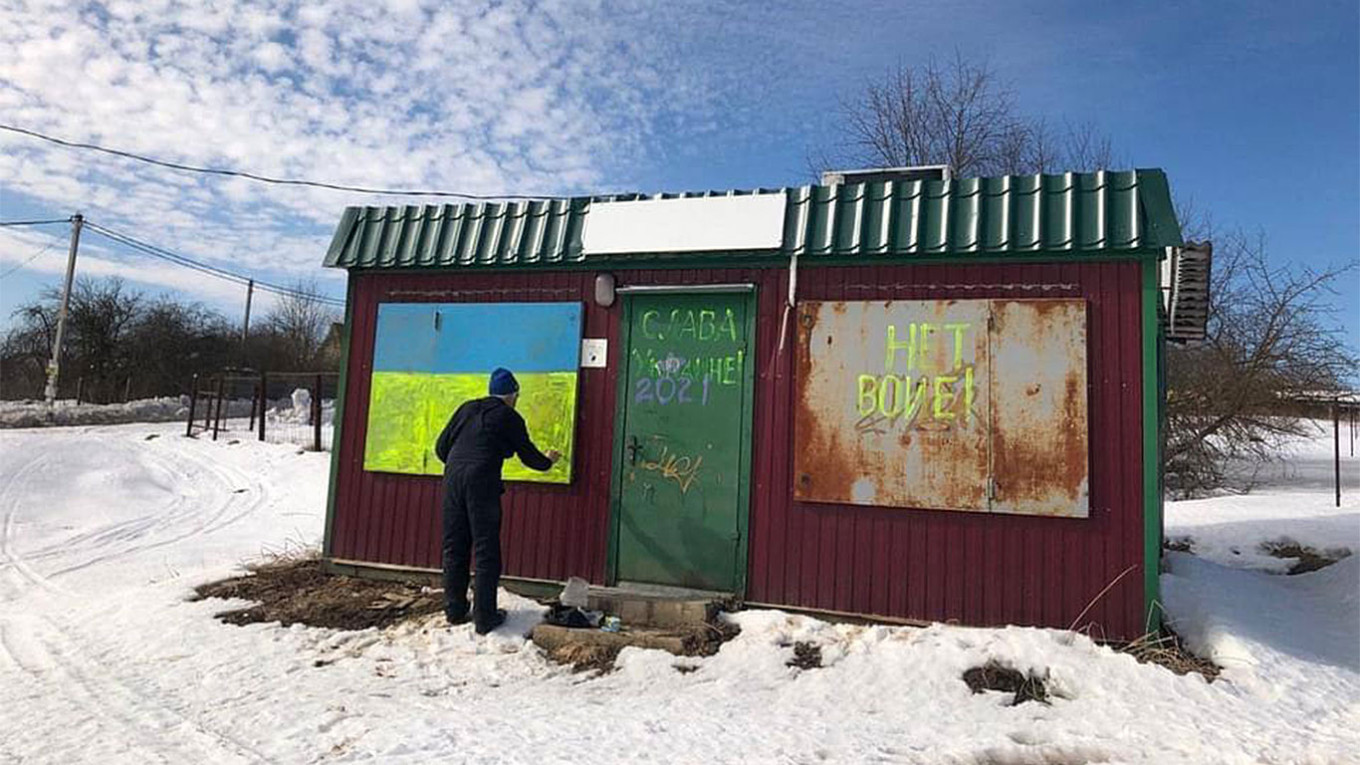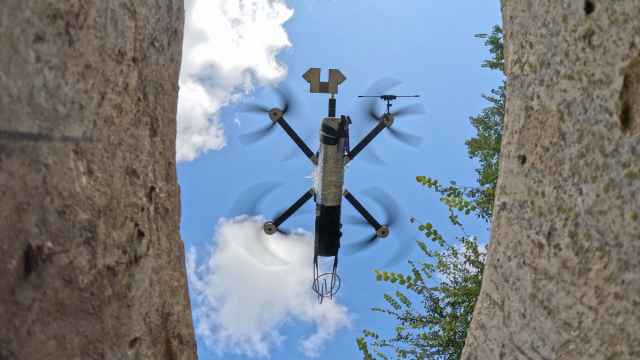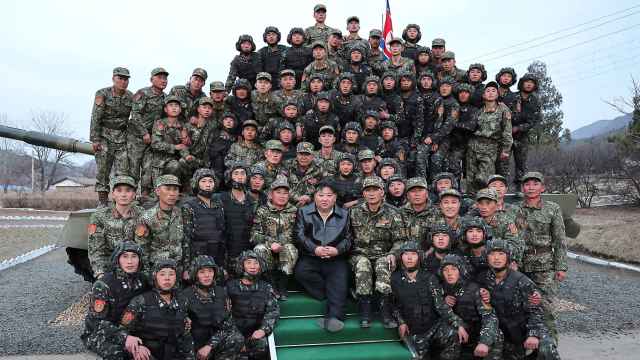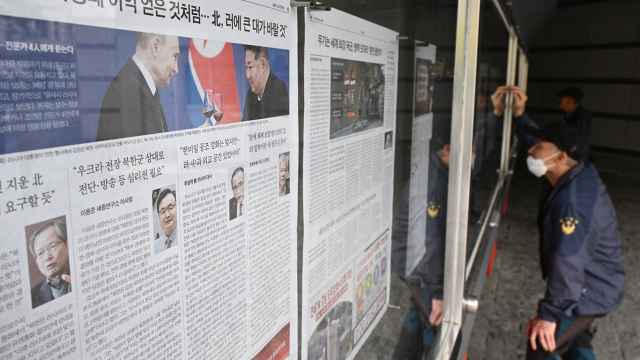From the very first day of the invasion of Ukraine, anti-war art has spilled onto the streets and squares of Russian cities. And, despite detentions and fines, for 10 months they have continued to protest against Russian militarism.
The Moscow Times picked seven of the most compelling anti-war artists and talked to some of them about their work and their lives.
Art group Yav
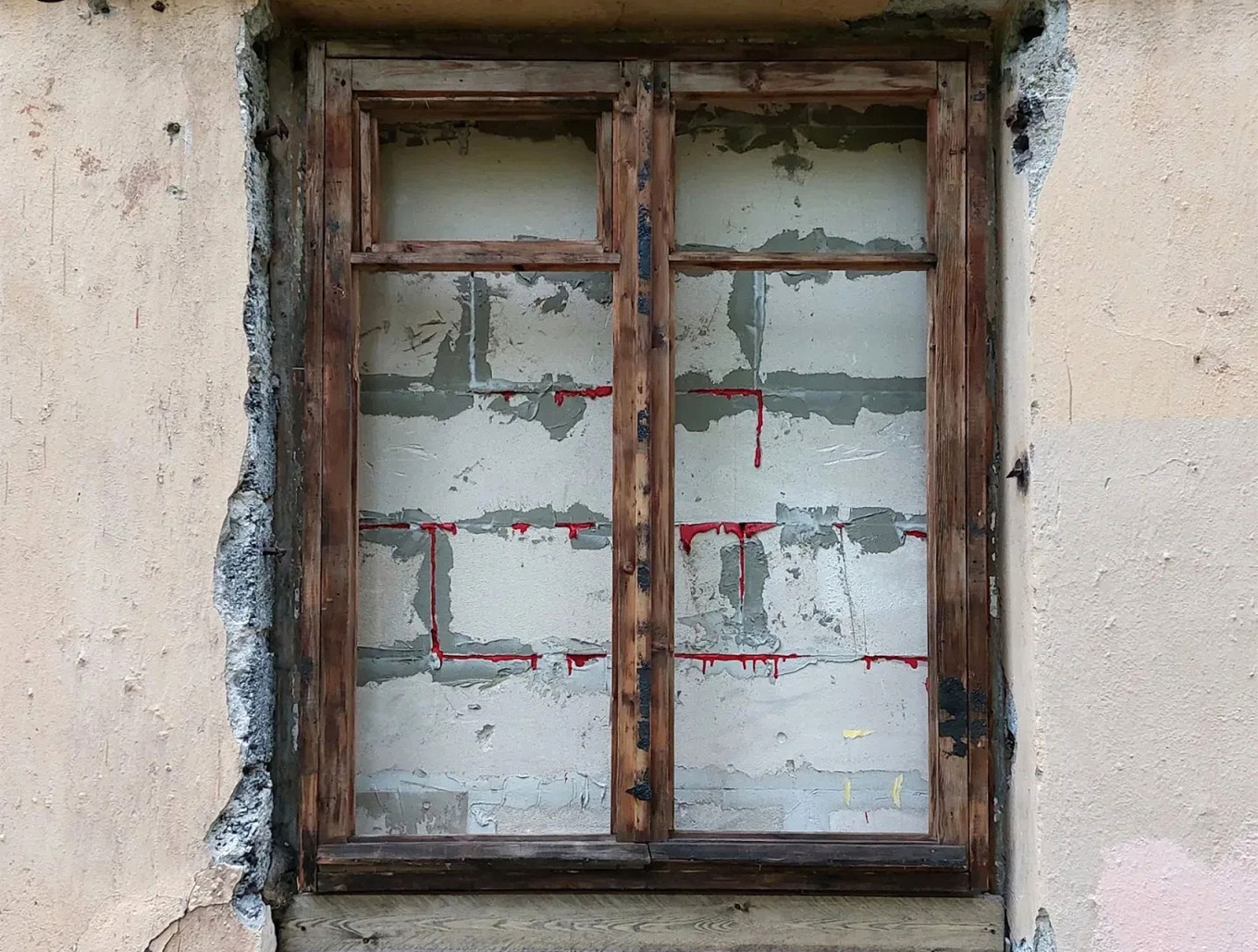
The St. Petersburg experimental art group Yav (“reality”) was founded by Anastasia Vladychkina. “The motto of my life is ‘what does not kill me makes me stronger’,” she said.
Before February, members of Yav painted their murals on walls that many people could see, but after the war began they started to paint on abandoned buildings or fences — so there would be less chance of a fine.
One of their most recent works is called “A Window onto Europe” and was painted in an industrial district. This famous phrase was first used by Venetian poet Francesco Algarotti while traveling in Russia. Later, poet Alexander Pushkin used it in his poem “The Bronze Horseman.” Today St. Petersburg is still often called Russia's "window onto Europe," but in Yav’s work the window to the West is boarded up with concrete bricks splattered with blood.
Koin
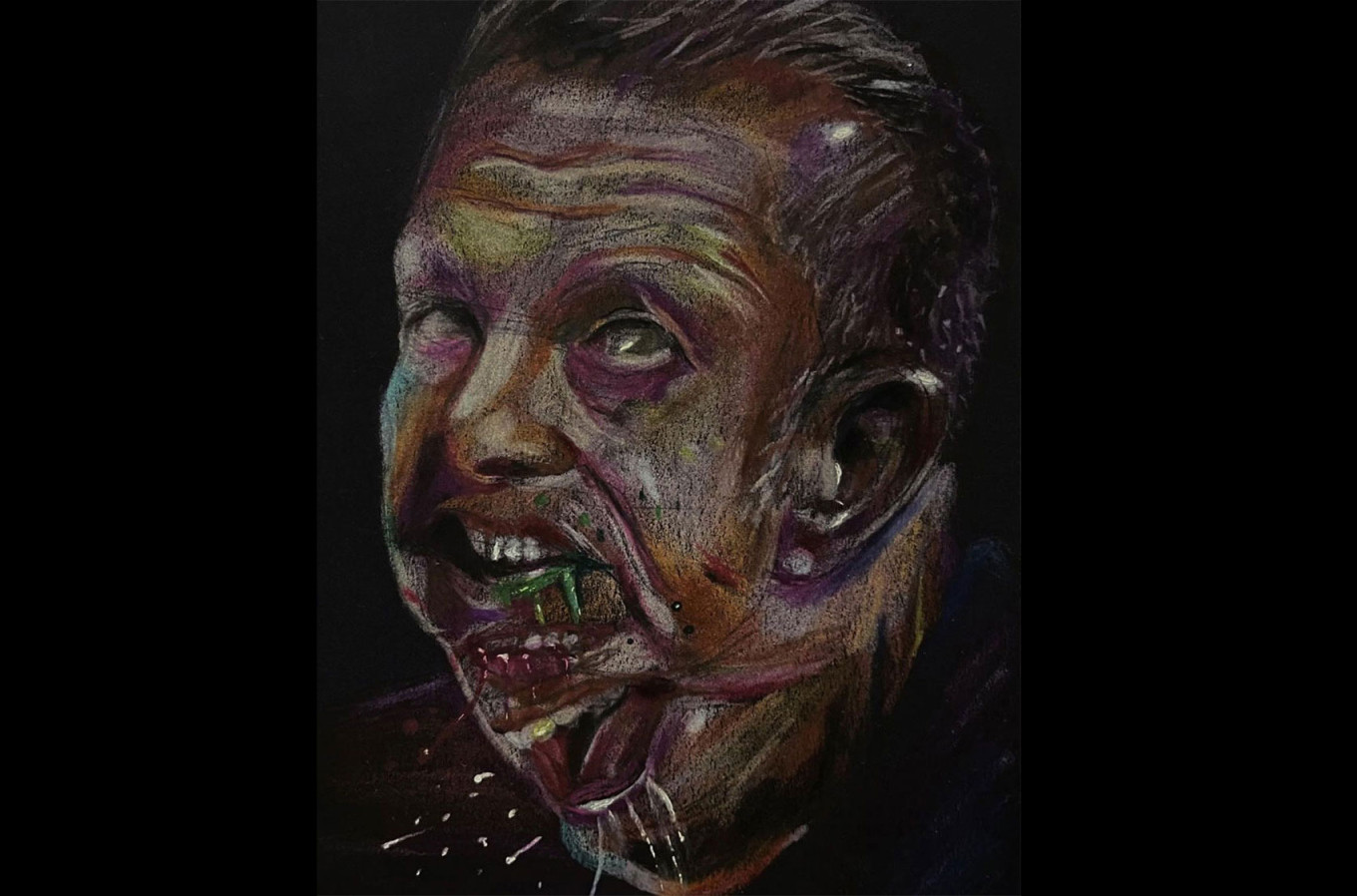
The anonymous underground artist Koin started painting a series of horrific creatures when opposition leader Alexei Navalny was arrested in 2021. Since then, Koin has published devastating portraits of Russia’s politicians and elites on social media as grotesque vampires and monsters.
While not strictly speaking a “street” artist, his work is widely available online, particularly on social networks.
“Some time ago I stopped painting because I didn’t want to work on this horrific theme anymore, I didn’t want anything to do with dirty politics… But after Feb. 24 I started again, and now I just can’t stop. I was depressed and disappointed by the war and what people thought about it. I was disappointed in people. I don’t really know how to live with it. Maybe it sounds selfish, but I make art because it helps me. I release the toxic emotions that poison me — anger, rage, fear, disgust. I know that my work helps other people with that as well,” Koin told The Moscow Times.
Yelena Osipova
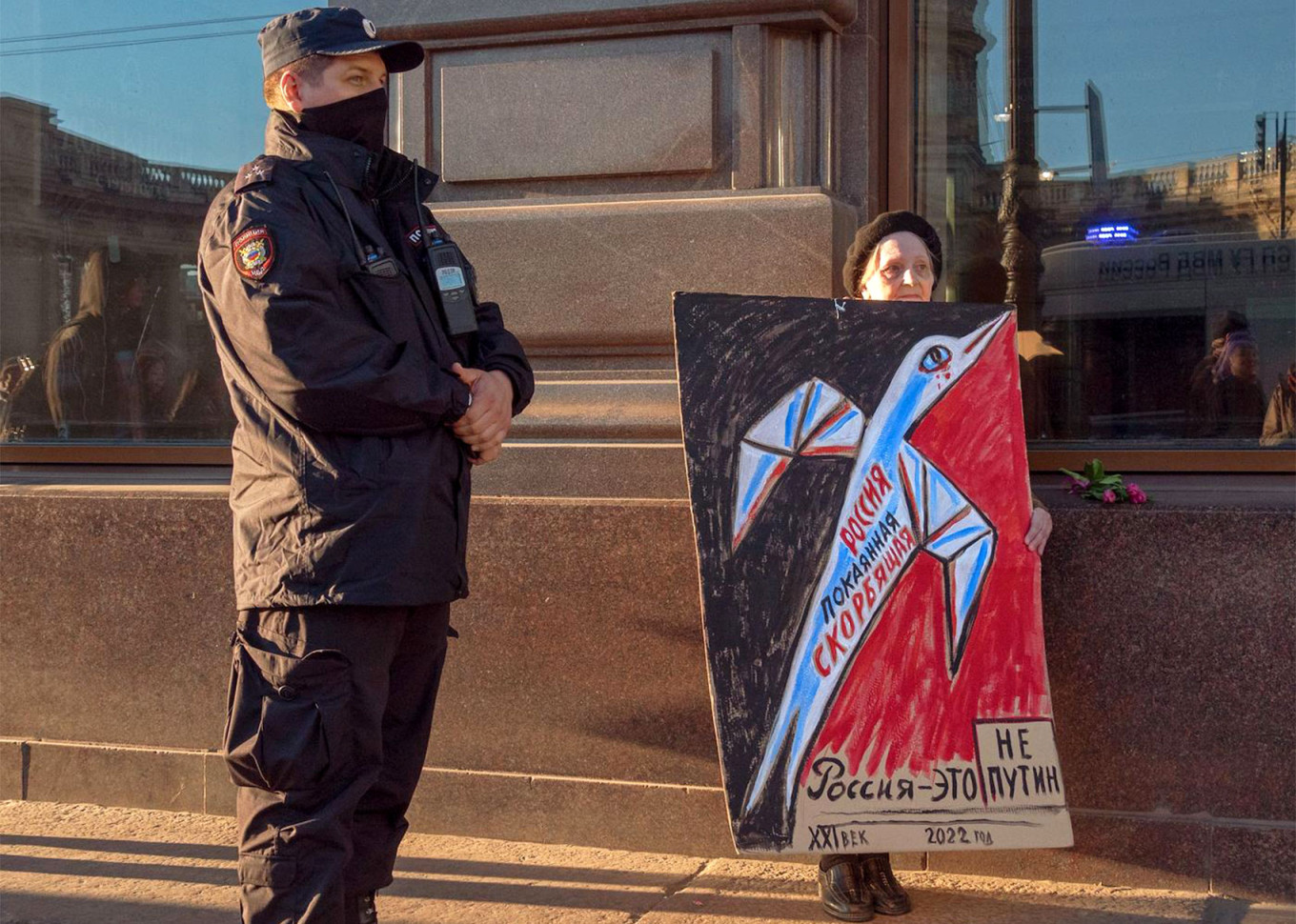
Yelena Osipova has been called “the conscience of St. Petersburg.” The 77-year-old pensioner has been protesting Putin’s regime for two decades. Although she has been fined and arrested many times, she won’t stop — even in wartime.
On the May 1 holiday, she took her latest work onto the city’s main street, Nevsky Prospekt. Her painting had the words "international solidarity," "no war" and "21th century: wars kill humankind” on it.
Journalists Yelena Lukyanova and Alexei Dushutin from independent media outlet Novaya Gazeta had photographed her and were standing next to her when the police arrived. The journalists were sent to the police station, the police officers took Osipova home — and the painting was confiscated.
Ffchw
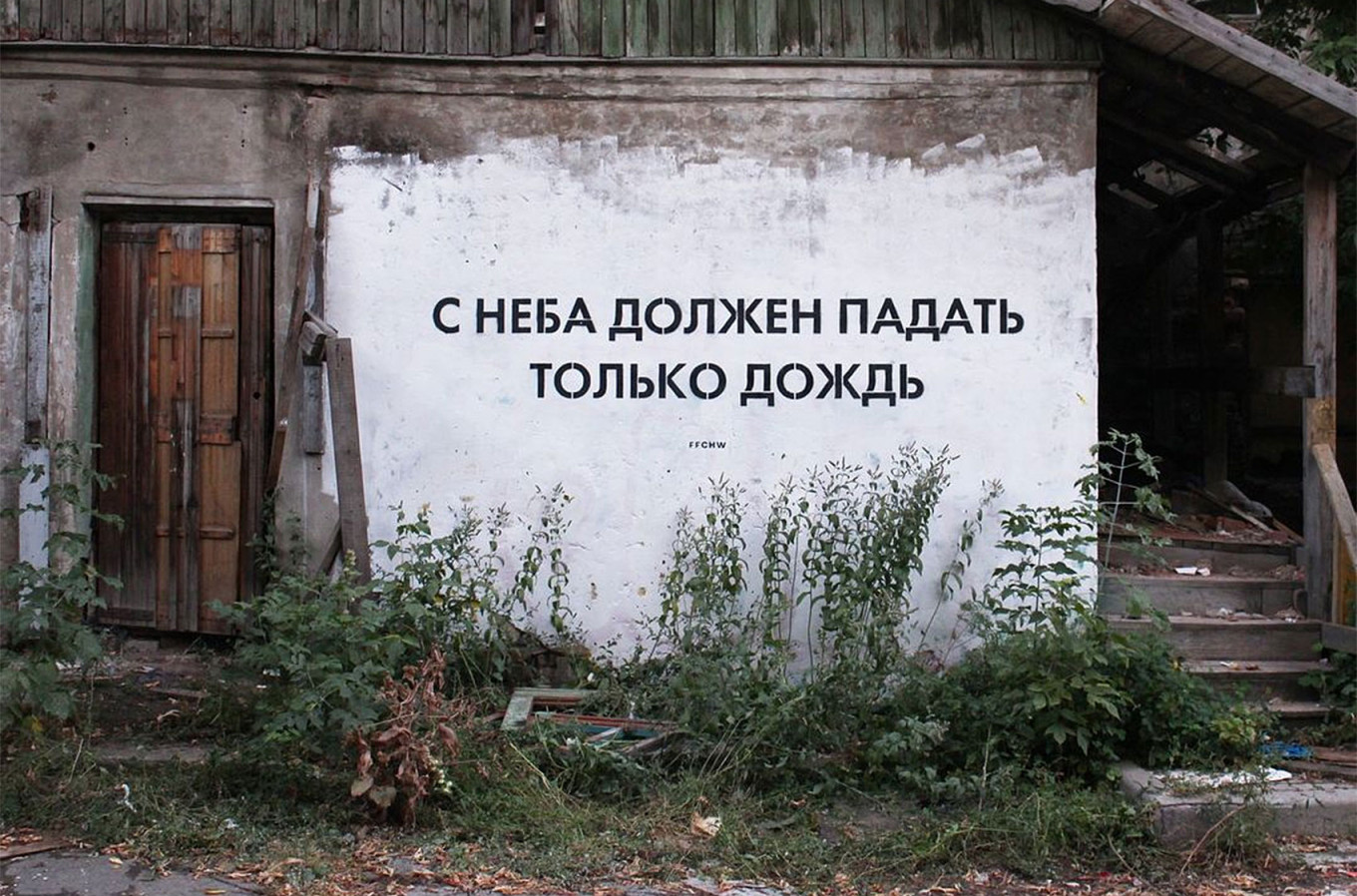
Perm street artist Ffchw creates provocative street art about life in Russia. But sometimes the provocation is hardly provocative at all. On Dec. 24 he was detained while working on a new piece of street art called “See you…” written in different languages, including Ukrainian.
Ffchw’s favorite piece is called “Only rain should fall from the sky.”
“All of my artwork is done from the bottom of my heart, and I don’t regret anything,” he told The Moscow Times.
“After Feb. 24 I had to look for a new language for my statements. My art is divided into 'before' and 'after.' Now it is also accompanied by many emotions like guilt and fear over the horrific and catastrophic events that are taking place. I’m sure that art can change lives, but will it be able to change the regime? I don’t know.”
Vladimir Ovchinnikov
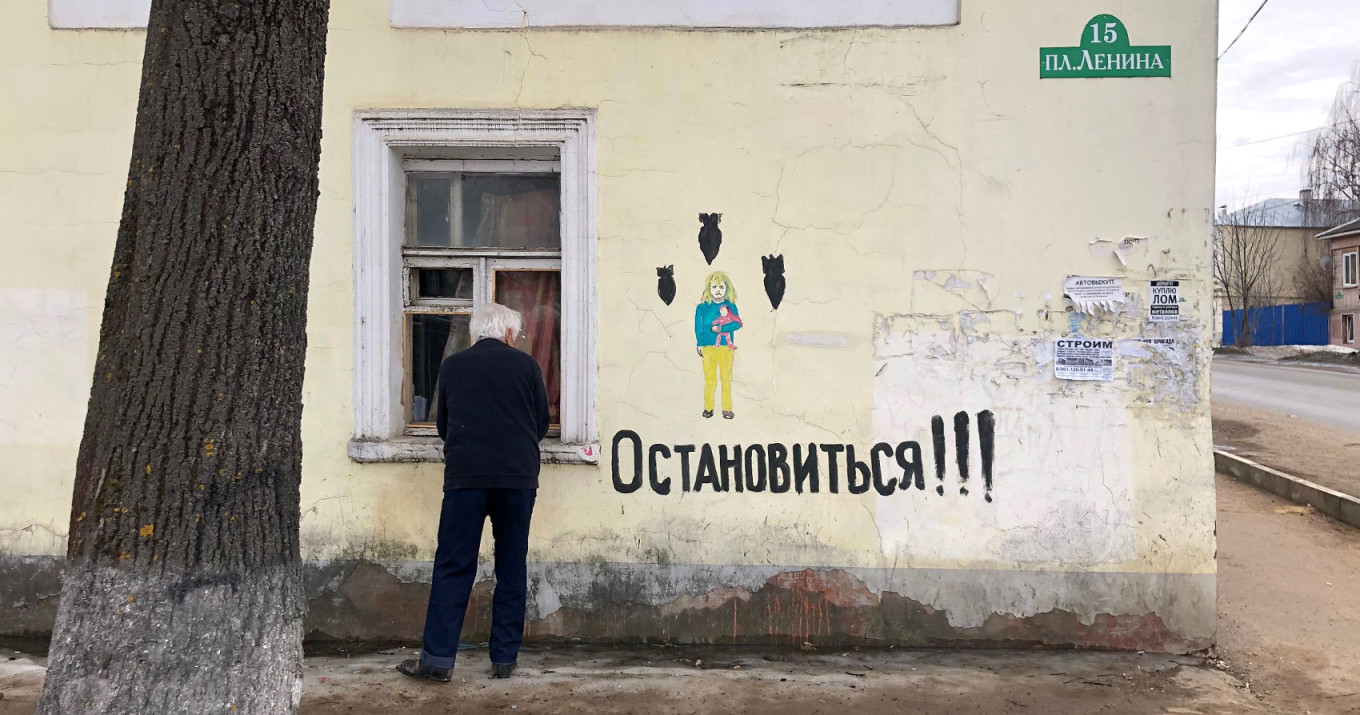
Vladimir Ovchinnikov, 85, is a well-known figure in Borovsk, a small town of 10,000 people not far from Moscow.
Ovchinnikov was fined 35,000 rubles ($475) earlier this year for a drawing of a little girl wearing the colors of the Ukrainian flag with three bombs falling onto one of the buildings in his town. Beneath her image he wrote: "STOP."
The mural was painted over, but later Ovchinnikov painted a new piece on the same place — the word "bezumie" (“madness”) in Russian with the Latin letter Z — the Kremlin symbol of its “special military operation.”
Misha Marker
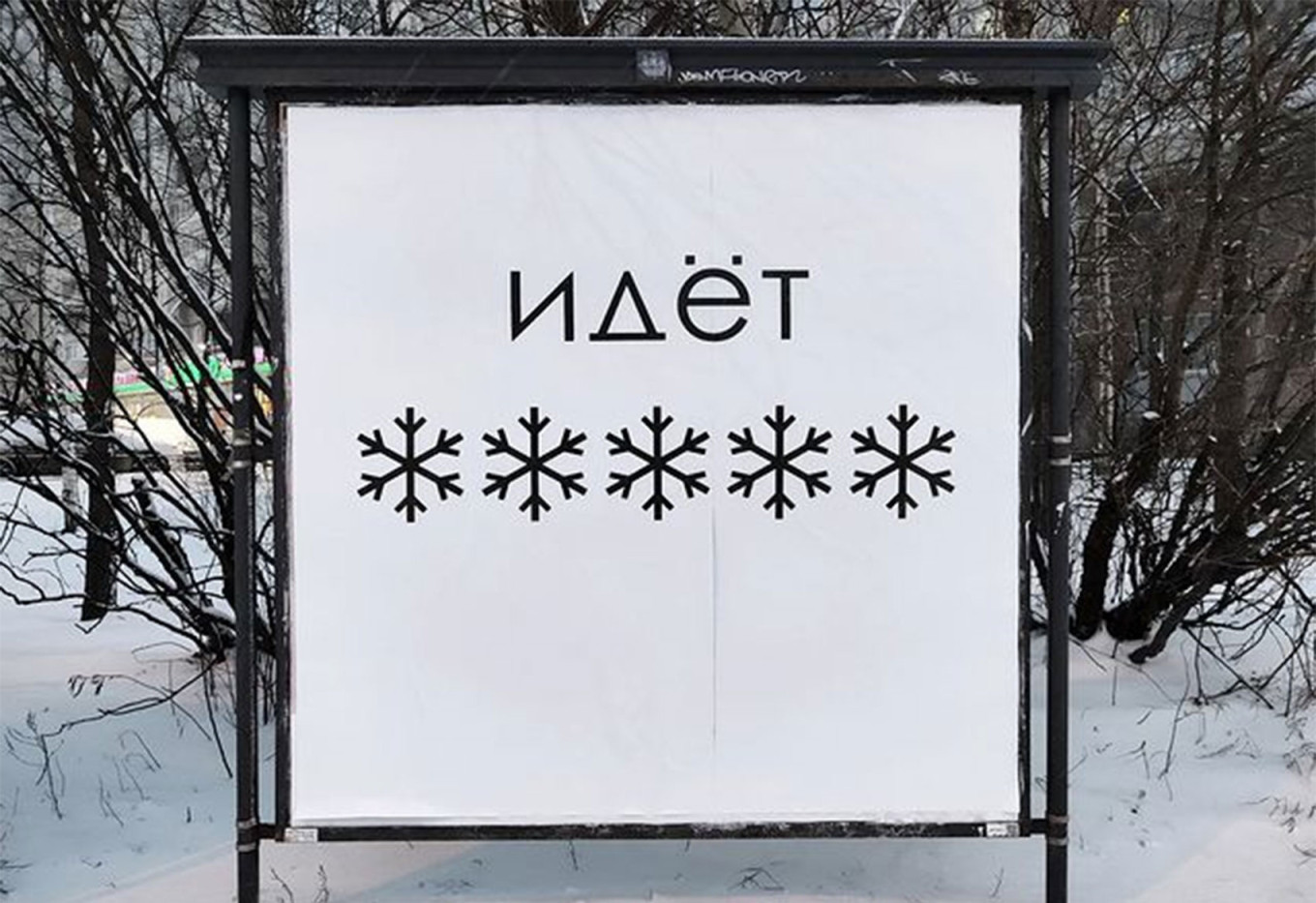
The works of one of the most famous Russian street artists, Misha Marker, are painted over almost as soon as they appear on the streets of St. Petersburg. But that doesn’t stop him. Before the war, his work was shown in many galleries and museums, including the Russian Museum. Marker hides his face in public so that no one knows what he looks like — or his age.
In recent works, he uses five snowflake-like asterisks as a replacement for the Russian word for “war” (the word is forbidden under Russian law and people are supposed, instead, to use the phrase “special military operation.”)
Zoom
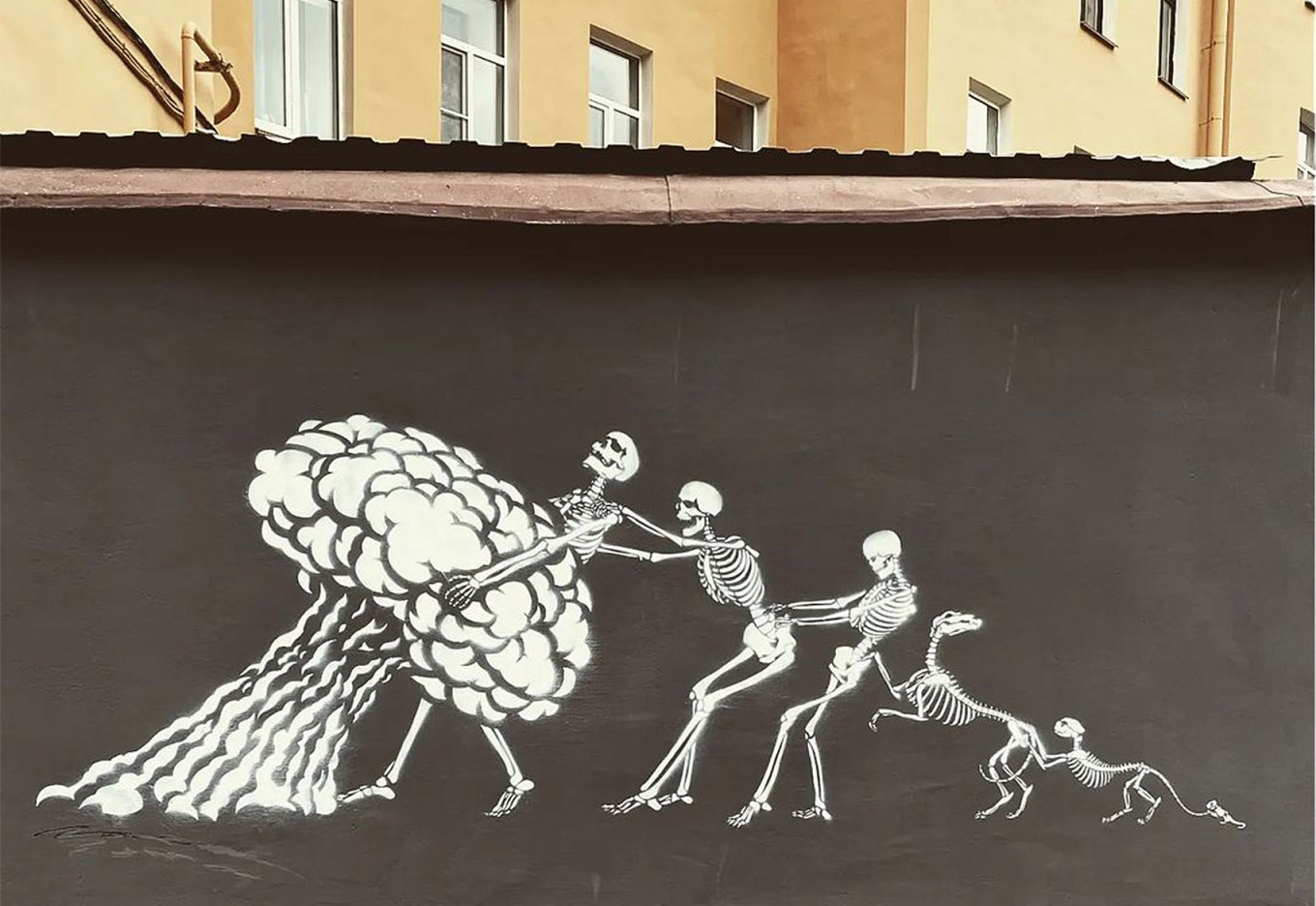
Like many other Russian street artists, Zoom does not reveal his real name or appearance and speaks to his public through social media and graffiti.
His works previously appeared on the streets of Moscow, but now he works mostly in St. Petersburg.
His recent painting “Turnip” is a reference to the famous Russian folk tale "The Gigantic Turnip." In this tale, a grandfather plants a turnip, which grows so large that he cannot pull it up himself. He asks his wife, but even together they can’t pull it up. Then their granddaughter and pets are recruited to help as well, until they finally pull the turnip out of the ground.
Zoom painted his version of the tale with a nuclear explosion and skeletons on Ulitsa Khersona, named after the Ukrainian city occupied by Russian forces for 8 months this year.
“I first showed this work a few years ago at a solo show, but the street version of it is now more relevant than ever. People see that this is not a joking matter,” Zoom told The Moscow Times.
“We live in traumatic but very interesting times. My personal challenge is to create works that unite people and prevent them from dehumanizing others. If that's not what art is for, then what is?”
A Message from The Moscow Times:
Dear readers,
We are facing unprecedented challenges. Russia's Prosecutor General's Office has designated The Moscow Times as an "undesirable" organization, criminalizing our work and putting our staff at risk of prosecution. This follows our earlier unjust labeling as a "foreign agent."
These actions are direct attempts to silence independent journalism in Russia. The authorities claim our work "discredits the decisions of the Russian leadership." We see things differently: we strive to provide accurate, unbiased reporting on Russia.
We, the journalists of The Moscow Times, refuse to be silenced. But to continue our work, we need your help.
Your support, no matter how small, makes a world of difference. If you can, please support us monthly starting from just $2. It's quick to set up, and every contribution makes a significant impact.
By supporting The Moscow Times, you're defending open, independent journalism in the face of repression. Thank you for standing with us.
Remind me later.


